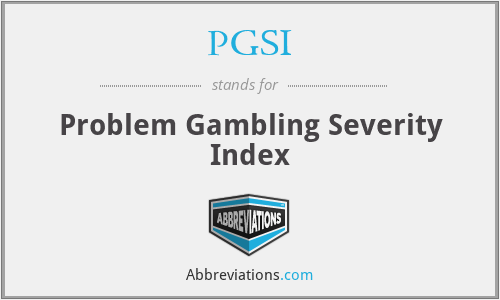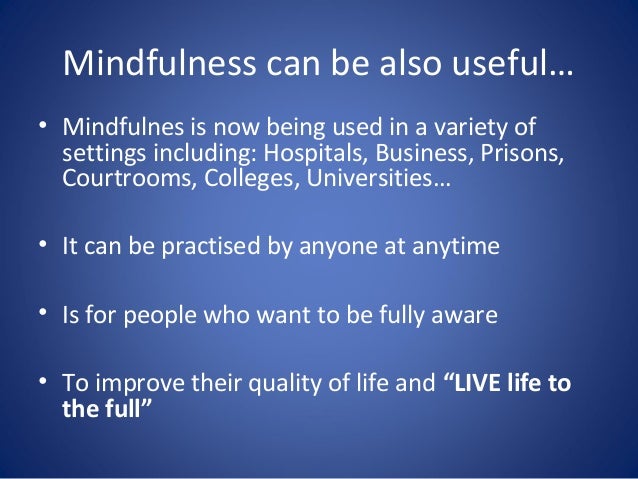Problem Gambling Index
Problem gambling is not just about losing money. Gambling problems can affect a person’s whole life. Gambling is a problem when it: gets in the way of work, school or other activities harms the person’s mental or physical health hurts the person financially damages the person’s reputation causes problems with family or friends. Overall gambling behaviors and gambling treatment needs among a statewide sample of drug treatment clients in Ohio, Journal of Gambling Studies, (DOI) 10.1007/s10899-013-9406-5 Problem Gambling Frequently Asked Questions for ADAMH Boards and Prevention and Treatment Service Providers.
The Problem Gambling Severity Index (PGSI) is the standardised measure of at risk behaviour in problem gambling. It is a tool based on research on the common signs and consequences of problematic gambling. Assessing where your client is now can help you make informed decisions on how to assist them. Take your client through the PGSI quiz. Problem Gambling Severity Index (PGSI) This self-assessment is known as the Problem Gambling Severity Index (PGSI). The PGSI is a reliable and standardised measure of at risk behaviour in problem gambling. It is a tool based on research on the common signs and consequences of problematic gambling.
Get Informed
What’s the big problem with gambling?
For most people, gambling is an exciting and relaxing way to win a little money or to socialize with friends. For others, gambling becomes a force that tears their family, financial, work and social lives apart.
When is gambling a problem?
Canadian Problem Gambling Index Pdf
If the thrill of the big win becomes more important than spending time with loved ones, if gambling affects work performance, or if debts grow and grow and it seems like they’ll never disappear, gambling may be a problem.
This site is designed to provide you with information about what problem gambling is and to recognize the signs and symptoms that there may be a problem.
What can I do?
Get informed and learn
First of all, learn about gambling and the differences between gambling and problem gambling.
Ask Yourself
Take one of the tests that are included and see if you or someone you care about might have a problem
Get Help
Beating a gambling problem can be a real challenge but the odds are in your favour! Learn how to gamble safely and how to help someone you care about to set limits with their gambling.
What is Problem Gambling
Problem gambling is any type of gambling that compromises, disrupts, or damages your personal, family, working and social relationships, as well as your financial situation. It also has a great effect on the individual’s physical, emotional and mental health.
The Canadian Problem Gambling Index, in its final report, defines problem gambling as:
Problem gambling is gambling behaviour that creates negative consequences for the gambler, others in his or her social network, or for the community.


Problem gambling has a serious impact on not only the gambler, but also on family members, friends and co-workers.
Gamblers Anonymous define problem gambling as:
Any betting or wagering, for self or other whether for money or not, no matter how slight or insignificant, where the outcome is uncertain or depend upon chance or skill constitutes gambling.
| Gambling | Problem Gambling |
|---|---|
|
|
Problem Gambling Facts
Problem Gambling Facts:
- 95% of the population have been involved in gambling are healthy when it comes to gambling however,
- 5% of the population are problem gamblers, and
- 1% of the 5% are compulsive/pathological gamblers.
Many people gamble without any problem. The vast majority of people gamble without doing any harm to themselves or others. According to the CAMH (Centre for Addiction and Mental Health) 1995 study, 84% of Ontario adults gamble at least once within a year, and 1/3 of the population (33%) has participated in at least 3 different forms of gambling in 1994 (Ferrir 1996).
Nevertheless, there is a sector of the population that will develop a “gambling problem” and problem gambling has a great deal in common with other addictions. Among gamblers, up to 50% have substance abuse problems. Nine to eighteen per cent of substance abusers will develop gambling problems. Substance abuse is higher among younger gamblers.
Gambling Phases
Progression of gambling phases
- Early Stage Dependence (Winning Phase)
In this stage, the financial rewards or the internal escape received as a result of gambling behaviour provide sufficient motivation for the behaviour to continue - Middle Stage (Losing Phase)
Losses begin to stack up, gamblers start “chasing” their losses, which cause the gambling behaviour to become more out of control. - Late Stage (Desperation Phase)
In this final stage, the gambler becomes overwhelmed. There are extreme emotional, financial and family/relationship problems. Criminal behaviour may occur, with possible legal consequences.
Types of Gamblers
- Professional: skilled, able to control
- Anti-Social or Criminal: use gambling to cheat, involved In illegal activities
- Casual Social: recreation and excitement, for win, loss is the cost of entertainment
- Serious Social: gambling main form of recreation but it is second to family and vacation
- Relief/Escape: to find relief from anxiety, depression, anger
- Compulsive: consists of four features: it is at the end of the continuum):
- Progression: can’t stop, bets go up; will continue gambling as long as they have funds. Time spent gambling increases.
- Intolerance of losing, when losses occur, the compulsive gambler “chases” the lost money. Losses are concealed from family members and lying becomes a major element in the gambling cycle.
- Preocupation: Thoughts about gambling become a constant obsession.
- Disregard for consequences: During this final stage, forgery, thefts and embezzlement are common. Despite these illegal acts, the gambler intends to score a big win and set everything right.

Some people gamble because they think they can “beat the system” or because they feel lucky.
The laws of probability will ensure that if you do “get ahead”, you’ll eventually erase those gains if you keep playing.
Gambling Facts and Myths:
There are many myths about winning when you gamble. According to the Responsible Gambling Council , these are some of the more frequent ones:
Myth: I can see a pattern in the way the machine is paying out
Fact: Games are based on random event
Myth: If I keep playing, I will eventually win, get my money back
Fact: The longer one plays, the more one will lose
Myth: One has a better chance of winning at a slot machine by the entrance
Fact: Casinos have no control over the outcomes of the player’s game
Myth: I have discovered a winning system
Fact: People who have an inflated belief in their skills are a greater risk of developing a gambling problem. They undervalue the impact of the things they can not control.
Myths and Misconceptions

- Gamblers have flamboyant, carefree personalities. (Some are, but others are quiet, introverted, and serious minded)
- Gamblers enjoy risks in all areas of their lives. (Some are big risk takers, others are conservative in personal habits and work)
- If you don’t gamble daily, you’re not a problem or compulsive gambler
- You can be addicted to an activity. (ambling can change one’s mood by affecting the biochemistry of the brain much the same way as alcohol or drugs)
- Gamblers are thieves and criminals. (Not true, but some gamblers may resort to criminal behaviour in desperation)
- A compulsive gambler will bet on anything. (Problem gamblers generally have preferences and are not tempted by every type of gambling)
- All compulsive gamblers want to lose. (are addicted to the act of gambling –they would rather lose than be out of the action)
- Compulsive gamblers are week-willed, otherwise they would simply stop.
The Journal of Gambling Issues (JGI) is the world's first and longest-running online, academic journal dedicated to understanding problem gambling. Due to the increasing convergence of gambling and gaming, the JGI expanded its scope in 2019 to include problem video gaming and technology use.
JGI is an open-access, indexed journal with a double blind peer review process that provides a scientific forum for developments in gambling-related research, policy issues, and treatments. JGI is now part of the Web of Science: Emerging Sources Citation Index. We are also indexed in Scopus, Crossref, Elselvier Series, Ebsco, Scimago and PsycInfo, among others.
Publishing Schedule and Fees: Issues are published triannually, although manuscripts are made publicly available as soon as they have been accepted/typeset on the JGI Online First platform. JGI does not charge any review or publication fees and is fully open access.
The JGI is published by the Centre for Addiction and Mental Health and funded by Ontario’s Ministry of Health and Long-Term Care.
French Language Announcement: Le JGI accepte désormais les manuscrits écrits en français. La procédure de soumission demeure la même en français et en anglais. Les instructions pour soumettre un manuscrit se retrouvent sous l'onglet Submissions. The JGI accepts manuscripts written in French. The submission process is identical for French and English manuscripts, and instructions are posted in the Submissions tab.
Journal ISSN (electronic): 1910-7595
Online First: Issues 46 & 47
Table of Contents
Special Issue (46): Gambling, Gaming, & Technology Use
Akiyo Shoun, Akira Sakamoto, Yukiko Horiuchi, Kumiko Akiyama, Hitoshi Ishida, Kikunori Shinohara, Yasunobu Komoto, Taku Sato, Naoyuki Nishimura, Nobuo Makino |
Canadian Problem Gambling Index Italiano
Claudia Venuleo, Lucrezia Ferrante, Simone Rollo |
Bieke Zaman, Maarten Van Mechelen, Rozane De Cock, Jonathan Huyghe |
Copyright © 2020 Centre for Addiction and Mental Health
Editor-in-chief: Nigel E. Turner, Ph.D.
Managing Editor:Vivien Rekkas, Ph.D. (contact)